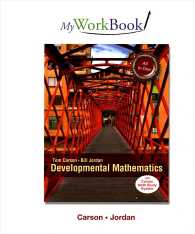Full Description
The ability of colleges and universities to implement strategic academic decisions is constantly challenged by a variable external environment, mounting public expectations, and evolving academic priorities. Although academic decision making is often dismissed by critics both inside and outside higher education as slow, parochial, and ineffective, institutions can and have developed processes to effectively address today's complex challenges. With the proper attention by administrative, faculty, and trustee leaders, academic decision making can comprise a robust set of processes essential to defining the mission, priorities, and activities of colleges and universities. This book explores the intersection of academic decision making with contemporary, cutting-edge challenges for which no simple solution exists. It moves the issue of decision making outside the contested arena of stakeholder responsibilities, and presents a series of distinct and unique chapters that illustrate how colleges and universities are creating and sustaining dynamic and effective decision-making processes. Issues such as entrepreneurial and commercial strategies, changing research infrastructure, inter-institutional cooperation, evolving expectations for student involvement and campus community, and technology and its required investments create ongoing challenges that colleges and universities must address. To respond to these challenges, campus leaders often cannot draw upon their wealth of experience or time-tested processes. Instead, they must find new ways to create and use decision-making structures and processes. Furthermore, as the issues change, the people, their roles, and their interactions will be different. In some cases, new people will enter the decision-making arena: For instance, students may play stronger roles, as may trustees or outside stakeholders including faculty from other institutions involved in joint academic degree programs. Faculty roles may also change as institutions become more entrepreneurial, wi







